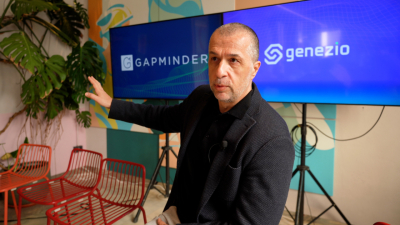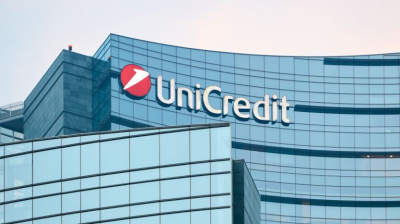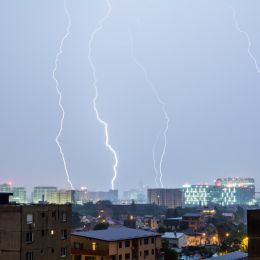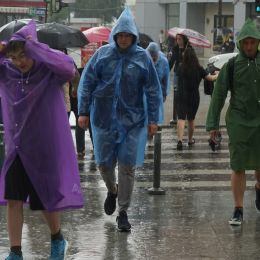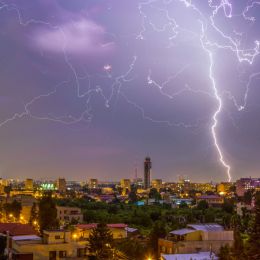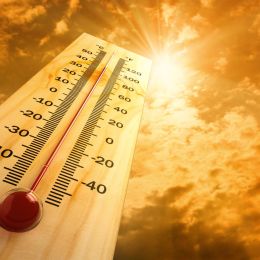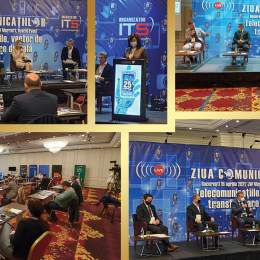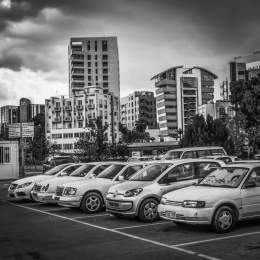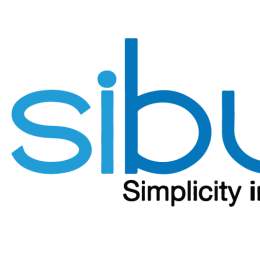From this point on, one last major step was needed. After being notified by the Competition Council, the green certificates renewable energy support scheme was under close inspection of the European Commission for compliance with the state-aid regime ( article 107-108 TFEU).
The Commission issued its approval in July (Decision of the European Commission: State Aid SA. 33134 (2011/N) – Romania) and, since then, the Romanian authorities have been making efforts in order to give the authorization applicability into the national legal system. The primary legislation, the Law 220/2008, was recently amended by the Government Emergency Ordinance no.88/2011 regarding the establishment of the promotion system for the production of energy from renewable energy sources, published in the Official Gazette no.
736/19 October 2011, which, un doubly, along with the subsequent regulations issued by the Romanian Energy Regulatory Authority (hereinafter “ANRE”), brings numerous positive changes in favour of RES-E developers, who were rather uncertain of Romania’s legal stability until present days.
Main amendments
Imposing minimum shares of renewable energy to consumers, suppliers or producers, quota obligations have become increasingly popular in recent years (the UK, Italy, Belgium, Poland, Sweden etc.). In contrast with the feed-in tariff mechanism, quota obligation system combined with green certificates is considered to be more in line with the market-based solutions and competitive policies that provide a strong incentive to technology cost reductions. In order to achieve multiple goals, this complex system must rely on strict and stable procedural rules, thus the Government Emergency Ordinance no.88/2011 focuses on the follow aspects:
i) Defining terms which have been subject of public debate
ii) Clarifying the green certificates system (issuance, trade and price adjustment, beneficiaries, number of GC’s granted, possible
accumulation with other subsidies, validity )
iii) Expanding the producer’s rights and obligations
iv) Indicating the procedural rules regarding cooperation by joint agreement
v) Reaffirming ANRE’s major role
vi) Differentiating the access to the grid
New concepts
The Government Emergency Ordinance no.88/2011 defines terms such as overcompensation, cost-benefit analysis, internal rate of return and empowers ANRE to reduce the number of green certificates, in case the results of monitoring the costs/incomes of the producers point out that the parameters specific to each technology differ significantly from the ones considered in the calculation made for authorization of the promotion system, which could lead to general overcompensation for one or several of the technologies .The actions envisaged shall be approved by Government Decision and shall not apply retroactively, in the sense that it will apply only to those projects that become operational after the entry into force of the amended scheme. Overcompensation refers to a situation when an internal rate of return is higher by 10% than the value considered for the relevant technology when authorizing the promotion system.
Moreover, overcompensation is avoided, in case of accumulation between the support scheme and other state aids, with a downward adjustment set by ANRE’s individual decision to reduce the number of GC’s proportionally with the ration between the amount of the subsidies and the reference investment value.
Multi-fuel power plants are defined also, in order to emphasise that GC’s are issued only when the electricity plant produces electricity using renewable and conventional power sources, which are used in individual combustion plants/boilers, as long as the conventional fuel energy content does not exceed 10% ( before the amendment the maximum percentage was 75%) of the total energy content .
The new green certificates mechanism
The transport and system operator issues green certificates to the producers on a monthly basis, for the quantity of electricity produced from renewable sources, deducting the energy necessary to the own technological consumption of the power plant. The GC’s, which are valid for 16 months, can be sold on the green certificates’ centralized market and/or on the market of green certificates’ bilateral contracts, to the suppliers and end users, allowing producers to cover their production costs and make profits.
In contrast to the provisions of the former Law no. 220/2008, the Government Emergency Ordinance no.88/2011 reduces the number of green certificates from 3 certificates to 2 certificates for the electricity obtained from geo-thermal energy, bio-mass (other than that coming from energetically cultures), bio-liquids, bio-gas and from 3 to 1 for the gas from processing the wastes and fermenting gas from mud. However, for the high efficiency cogenerated electricity produced in plants which use electricity obtained from geo-thermal energy, bio-mass ,bio-liquids ,bio-gas and qualified by ANRE as of high efficiency, one green certificate shall be granted supplementary for every MWh produced and delivered.
The number of green certificates for hydraulic, solar, wind energy and bio-mass obtained from energetically cultures remained the same. By exception, independent of the type of the renewable source used, the producers of electricity benefit from 1 green certificate for every MWh produced and delivered during trial period.
Procedural rules regarding cooperation by joint agreement
Cooperation by joint agreements such as energy quantity transfer and joint production can involve also private operators. Such agreements are concluded for one or several years and notified to the European Commission by the line ministry within no more than 3 months as of the conclusion of each year of being in force.
If electricity from renewable energy sources produced and consumed in a third party country is taken into account for the meeting of the national objective concerning gross final consumption of energy from renewable sources, the line ministry shall send a request for receiving the European Commission’s acceptance, in accordance with the Directive’s 28/2009/EC provisions.
ANRE’s major role
ANRE’s status as central institution with a major role in Romania’s renewable energy legal system is reaffirmed by the Government Emergency Ordinance no.88/2011, which expands its competence as follows.
ANRE is the only organism entitled to accredit the producers of electricity from renewable energy sources, in order to benefit from the system of promotion by green certificates, and to determine by order, by the latest 1st of March of each year, the annual mandatory green certificates acquisition quota,without exceeding the level corresponding to the mandatory quotas, set out for each year until 2020.
Furthermore, ANRE classifies the electric groups/plants which benefit from the promotion scheme and elaborates the regulatory guidelines for the monitoring of production costs/revenues from renewable sources for electricity producers which benefit from the promotion scheme by means of green certificates.
Starting 2011, ANRE indexes annually the trade values, according to the average annual inflation rate for the previous year and approves by order the minimum and maximum values .
Last but not least, by the 15th of April of each year, ANRE determines, for each supplier and for each of the individual producers who have the obligation to acquire green certificates, the degree of individual fulfilment of the annual mandatory green certificate acquisition quota of the previous calendar year. Suppliers, as well as the producers who do not fulfil the annual mandatory quota, have the obligation to pay for each non-acquired green certificate an equivalent value of 110 Euro. The amount generated shall be used by the Environment Fund Administration in view of financing investments in the production of energy from renewable sources by natural persons obtaining power capacities under 100 kW.
Producer’s expansion of rights and obligations
A positive aspect of the Ordinance refers to the right to benefit from the support scheme even in the trial period of the power plant, if the producers fulfil the two criteria’s: accreditation from ANRE and the commissioning, respectively the refurbishment of groups/plants must be completed until the end of 2016. The accreditation can be performed in stages , depending on the commissioning of each individual power group within a power capacity containing several such power groups.
As a novelty, producers of electricity from renewable sources from biomass, bio liquids and biogas can benefit from the promotion system established, provided they own certificates attesting the origin of these sources.
With regard to obligations, producers, alongside suppliers, must acquire a number of green certificates every year, RES-E producers have a double nature obligation to inform :On one hand they shall notify on a monthly basis to the transport operator the necessary information required for establishing the quantity of RES-E for which GC are to be granted, and, on the other hand , they must inform consumers on the cost of green certificate acquisition for every KWh sold .
Furthermore, in case of RES-E produced in cogeneration, the developers must choose between either the support scheme for the promotion of high efficiency cogeneration or for the promotion systemestablished by Law no. 220/2008.For RES-E producers which have received GC prior to the application of Law no. 220/2008, the duration for which the promotion system applies shall be reduced in direct ratio with the period for which they have benefited from GC.
Investors in renewable power plants with installed capacity of more than 125 MW, who fulfil the conditions for applying the promotion system set forth by Law 220/2008, must prepare and submit the documentation necessary for the assessment of the support measure by the European Commission.
Access to grid
Producers of electricity from renewable energy sources are connected to the electricity transport/distribution network to the extent the safety of the National Energy System is not affected.
Unlike the former legislation, the Government Emergency Ordinance no.88/2011 does not ensure general priority access to the grid for all RES-E producers (only for the energy contracted and sold at a regulated price). Nevertheless, for the electricity, using the support system, contracted and sold on the energy market, guaranteed access to the grid will be provided.
Conclusions
The amendments brought by the Government Emergency Ordinance 88/2011 to the Law 220/2008 have completed the primary legislation on renewable energy, in accordance with the parameters fixed by the European Commission. Once the methodological norms are published, the RES-E market will grow significantly.
Author: attorney Andrei Corcaci
Citeste si:
Calculator Salariu: Află câți bani primești în mână în funcție de salariul brut »
Te-ar putea interesa și:

































































